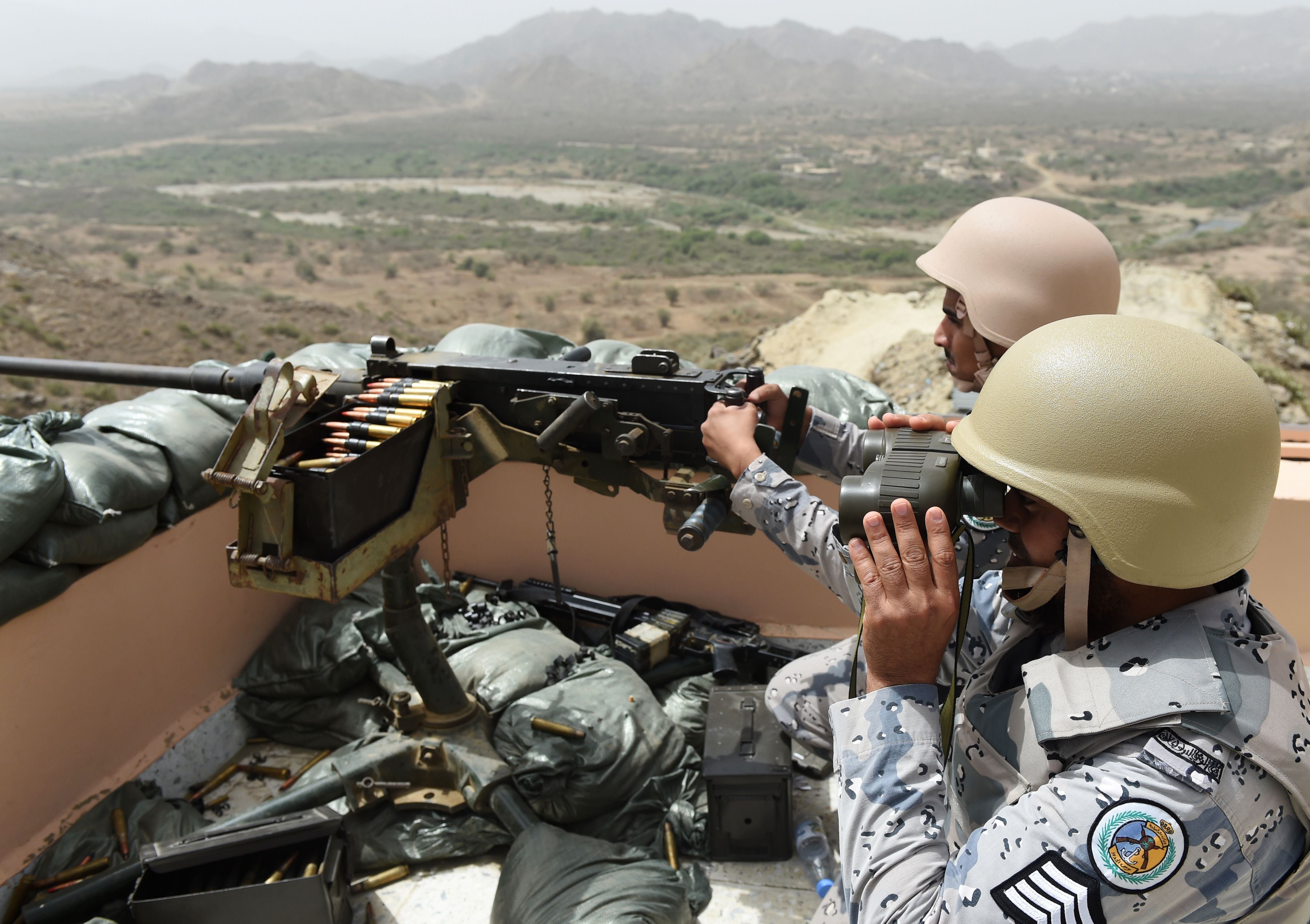‘Possibly thousands’ of unarmed migrants slaughtered with machine guns by Saudi border guards – report
‘They fired on us like rain. When I remember, I cry,’ says a young Ethiopian woman
Your support helps us to tell the story
From reproductive rights to climate change to Big Tech, The Independent is on the ground when the story is developing. Whether it's investigating the financials of Elon Musk's pro-Trump PAC or producing our latest documentary, 'The A Word', which shines a light on the American women fighting for reproductive rights, we know how important it is to parse out the facts from the messaging.
At such a critical moment in US history, we need reporters on the ground. Your donation allows us to keep sending journalists to speak to both sides of the story.
The Independent is trusted by Americans across the entire political spectrum. And unlike many other quality news outlets, we choose not to lock Americans out of our reporting and analysis with paywalls. We believe quality journalism should be available to everyone, paid for by those who can afford it.
Your support makes all the difference.Hundreds of Ethiopian migrants have been allegedly killed by border guards in Saudi Arabia who fired machine guns and launched mortars at those trying to cross into the kingdom from Yemen, according to a new report.
According to Human Rights Watch, hundreds or “possibly thousands” of migrants seeking asylum in Saudi Arabia have been slaughtered by the border guards between March 2022 and June 2023.
It cited eyewitness reports that claimed the border guards used explosive weapons to kill migrants, while some including women and children, were shot at close range.
In some instances, the border guards asked migrants what limb to shoot, the report said.
A woman in her 20s from Ethiopia’s Oromia region said Saudi border guards fired on a group of migrants they had just released from custody.
“They fired on us like rain. When I remember, I cry,” she said.
“I saw a guy calling for help, he lost both his legs. He was screaming; he was saying, ‘Are you leaving me here? Please don’t leave me.’ We couldn’t help him because we were running for our lives.”
The allegations highlight a significant escalation of abuses along the perilous “eastern route” from the Horn of Africa to Saudi Arabia, which is home to thousands of Ethiopian refugees.
The two-year-long brutal civil war in northern Ethiopia, that ended in 2022, has driven thousands of people out of the country. Some 750,000 Ethiopians live in Saudi Arabia, with as many as 450,000 likely having entered the kingdom without authorisation, according to 2022 statistics from the International Organisation for Migration.

However, Riyad has been pushing back on thousands of Ethiopian migrants due to rise in youth unemployment in the kingdom.
Human Rights Watch said the “deliberate escalation” in both the number and manner of targeted killings if committed as a part of Saudi government policy, would amount to a “crime against humanity”.
The New York-based rights organisation spoke to 38 Ethiopian migrants who described watching Saudi guards shooting at migrants or launching explosives at groups. They all reportedly described women, men, and children strewn across the mountainous landscape severely injured, dismembered or already dead.
It analysed over 350 videos and photographs posted to social media or gathered from other sources filmed between May 2021 and July 2023, while also examining several hundred square kilometres of satellite imagery captured between February 2022 and July 2023.
The images showed dead and wounded migrants on the trails, in camps and in medical facilities as burial sites near the migrant camps grew in size, the report said. The group sites identified as the migrant camp at Al-Thabit also could be seen in satellite images, which corresponded to the group’s narrative that the camp largely had been dismantled in early April.
Asylum seekers crossed the Gulf of Aden from Djibouti in unseaworthy vessels and were taken to the Saada governorate by Yemeni smugglers. Many said Houthi forces working with the smugglers extorted or transferred them to “detention centres”, where people were abused until they could pay an “exit fee”.
According to the UN, the Houthi-controlled immigration office “collaborates with traffickers systematically direct migrants” to Saudi, bringing $50,000 (£39,237) a week. The Houthis have been in control of Sanaa since September 2014.
“Saudi officials are killing hundreds of migrants and asylum seekers in this remote border area out of view of the rest of the world,” said Nadia Hardman, refugee and migrant rights researcher at Human Rights Watch.
“Spending billions buying up professional golf, football clubs and major entertainment events to improve the Saudi image should not deflect attention from these horrendous crimes.”
The organisation has called on Riyadh to “immediately and urgently revoke” any policy of killing migrants and urged the UN to investigate the killings.
A Saudi government official, speaking to the Associated Press on condition of anonymity as he was not authorised to speak publicly, called the Human Rights Watch report “unfounded and not based on reliable sources”, without offering evidence to support the assertion.
Riyadh has previously denied allegations of cross-border artillery shelling and arms fire by alleged Saudi security forces that were raised by the United Nations in 2022.
“If migrants are captured, they are reportedly oftentimes subjected to torture by being lined up and shot through the side of the leg to see how far the bullet will go or asked if they prefer to be shot in the hand or the leg,” the letter sent to Saudi Arabia from the UN read.
Saudi Arabia responded saying it “categorically refutes” allegations that the kingdom carries out any “systematic” killings on the border.




Join our commenting forum
Join thought-provoking conversations, follow other Independent readers and see their replies
Comments